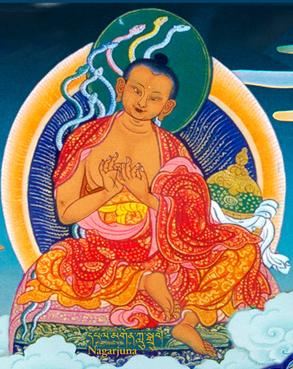
I.1.
From themselves, from something else, from both, or from no cause.
I.2.
A cause (hetu), objects of sensations, “immediately preceding condition,” and of course the predominant influence, there is no fifth.
I.3.
And if no self-existence exists, neither does “other-existence” (parabhava).
I.4.
Nor does the efficient cause exist without possessing a conditioning cause.
Conditioning causes are not without efficient causes,
Nor are there conditioning causes which possess efficient causes.
I.5.
As long as something has not originated, why are they not so long (i.e. during that time) “non-conditioning-causes” ?
I.6.
Of what non-real thing is there a conditioning cause? And if it is already real, what use is a cause?
I.7.
How can there be a cause which is effective in this situation?
I.8.
Then if there is an element having no object of sensation, how is it possible to have an object of sensation?
I.9.
Therefore it is not proper to speak of an ”immediately preceding condition”; for if something has already ceased, what cause is there for it.
I.10.
It is not possible at all that: “This thing ‘becomes’ upon the existence of that other one.”
I.11.
So how can that which does not reside in the conditioning cause result from conditioning causes?
I.12.
Why then would a product not proceed also from non-causes?
I.13.
on the other hand, the causes do not consist of themselves.
How can a product resulting from conditioning causes not consisting of themselves be consisting of those causes?
I.14.
How can there be a conditioning cause or non-cause when a product is not produced?
Source: Orientalia




